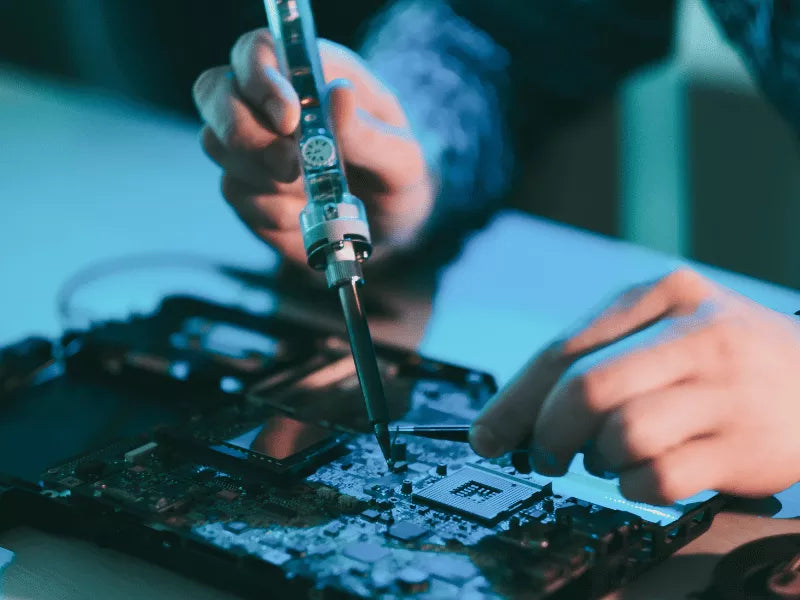The expertise of our service engineers: an essential pillar in the face of Artificial Intelligence
Introduction
In the digital transformation era, artificial intelligence (AI) is infiltrating all sectors, promising efficiency gains and increased automation. Yet in critical areas such as the maintenance and servicing of scientific measuring instruments, AI is no substitute for human expertise. At HORIBA France, service engineers play an essential role for our customers, not only by maintaining equipment, but also by providing unrivalled know-how and in-depth understanding of the instruments and environments in which they operate.
Irreplaceable technical expertise
Service engineers have in-depth knowledge of the instruments they service. Trained in specific technologies, they master the subtleties of equipment and know how to diagnose faults that often require in-depth contextual analysis. Unlike AI, which operates mainly on predictive models and existing databases, our engineers know how to interpret the smallest details, identify root causes and propose solutions adapted to each situation, thanks to years of experience in the field and ongoing training in our Center of Excellence.
For example, an optical emission spectrometer showing measurement drift may require recalibration based not only on objective data, but also on the engineer's experience, taking into account the instrument's history and the conditions of use specific to the customer's environment.
Customized support and valuable customer relationships
In addition to their technical role, our service engineers provide personalized support for our customers. They understand the industrial constraints and specific expectations of each user, enabling them to adapt their interventions and advise on best practices for optimizing instrument use.
While AI can provide algorithm-based recommendations, it cannot replace the human relationship established between a customer and his or her referral engineer. This proximity builds mutual trust and ensures that the customer's needs are taken care of proactively, long before a problem occurs.
Adaptability to the unexpected
Industrial environments are often unpredictable. Service engineers are skilled in handling complex situations, where data alone is not enough to make the right decision. They can adapt their diagnosis according to numerous parameters, such as the general state of the equipment, environmental conditions and production requirements.
For example, an AI may report that a sensor is out of tolerance, but it won't always be able to identify whether this variation is due to a calibration problem, external contamination or mechanical wear requiring immediate intervention. The expert eye of an engineer, combined with his or her experience in the field, enables the most appropriate decisions to be taken to avoid unnecessary production downtime.
A proactive, pedagogical approach
One of the great strengths of our service engineers is their ability to share their knowledge. In the course of their work, they train users in the correct use of instruments, raise awareness of good maintenance practices and share their expertise to prevent potential breakdowns. They also share their experiences with each other to learn constructively from each technical problem encountered.
AI can of course generate automated recommendations, but it cannot answer operators' specific questions or adapt its discourse according to the interlocutor's level of knowledge. On the other hand, an engineer can simplify technical concepts and provide users with effective guidance to maximize the efficiency and lifespan of their equipment.
Conclusion
While AI represents a major advance in many fields, it can by no means replace the expertise and know-how of service engineers. Their in-depth knowledge of instruments, their ability to adapt to complex situations and their close relationship with customers are all factors that make them essential players in the maintenance and servicing of HORIBA measurement equipment.
Rather than replacing them, AI should be seen as a complementary tool, enriching engineers' analysis and enabling them to operate even more efficiently. But in the final analysis, nothing can replace human intelligence, experience in the field and the passion of the experts who ensure the smooth running of our instruments and the satisfaction of our customers every day.

